Modern life is designed to mess with your sleep. Phones glow at you until midnight. Stress keeps your nervous system buzzing like a stuck alarm. And your brain, which evolved to sleep under firelight and stars, is left guessing when it’s supposed to switch off.
The truth? Sleep isn’t about tricks or potions. It’s about giving your body the signals it’s wired to recognise: darkness, calm, and rhythm. That’s your circadian rhythm at work — the 24-hour internal clock that regulates melatonin, cortisol, and hundreds of other processes. A proper bedtime reset means setting the stage so this clock works with you, not against you.
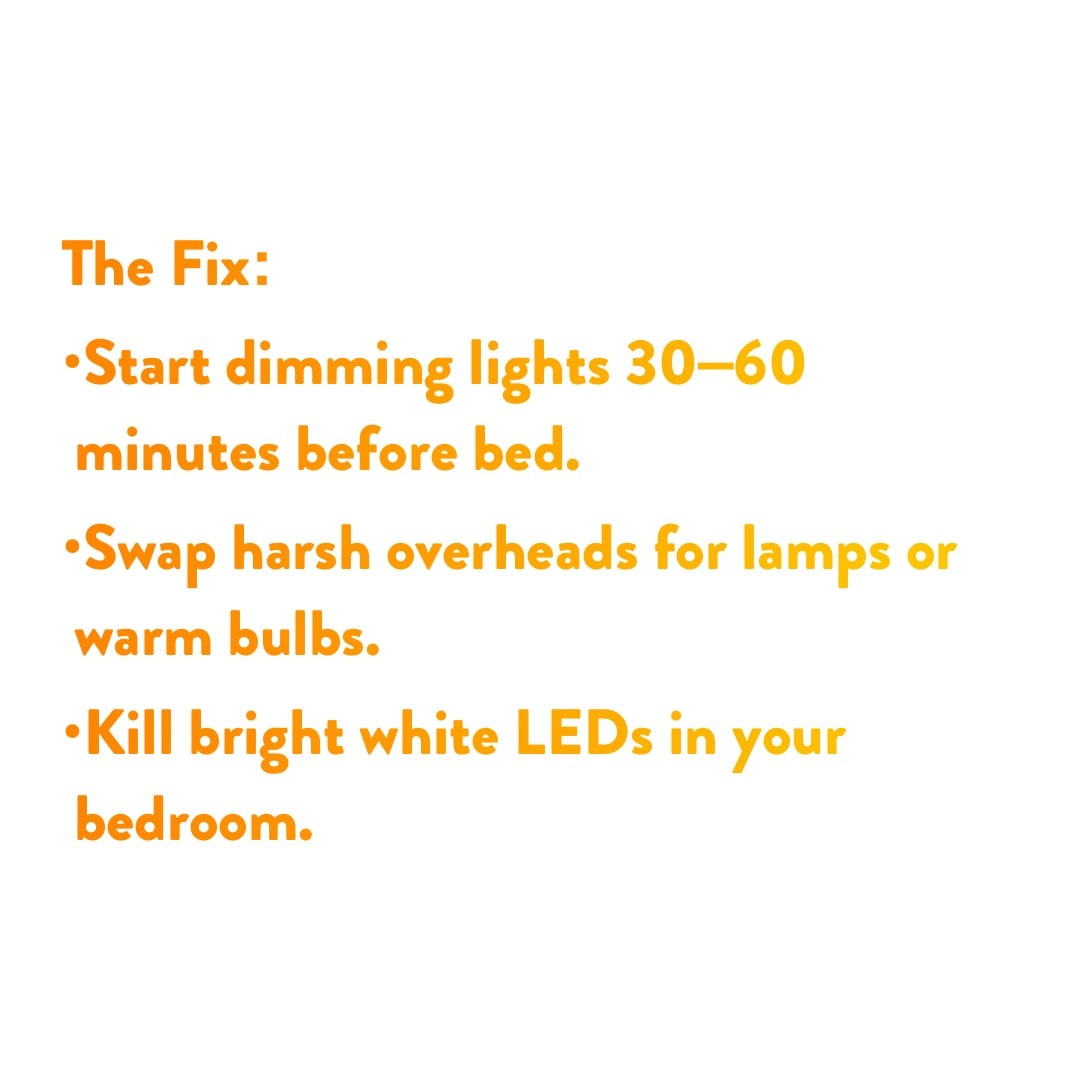
Light is the most powerful external cue for your circadian rhythm. The SCN (suprachiasmatic nucleus) in your brain takes light from your eyes and decides whether it’s time to be awake or asleep. Blue light from screens mimics daylight and can suppress melatonin production by as much as 80% if you’re scrolling at night.
If you can’t avoid screens (emails, late work, or Netflix — it happens), you need a shield. That’s where blue light blocking glasses come in. They filter the worst offenders in the 450–480nm wavelength range — the exact slice of light that delays melatonin.
NUYU Blue Light Glasses are coming soon. Not clunky gamer goggles. Sleek, bold, and designed to slot straight into your evening ritual.
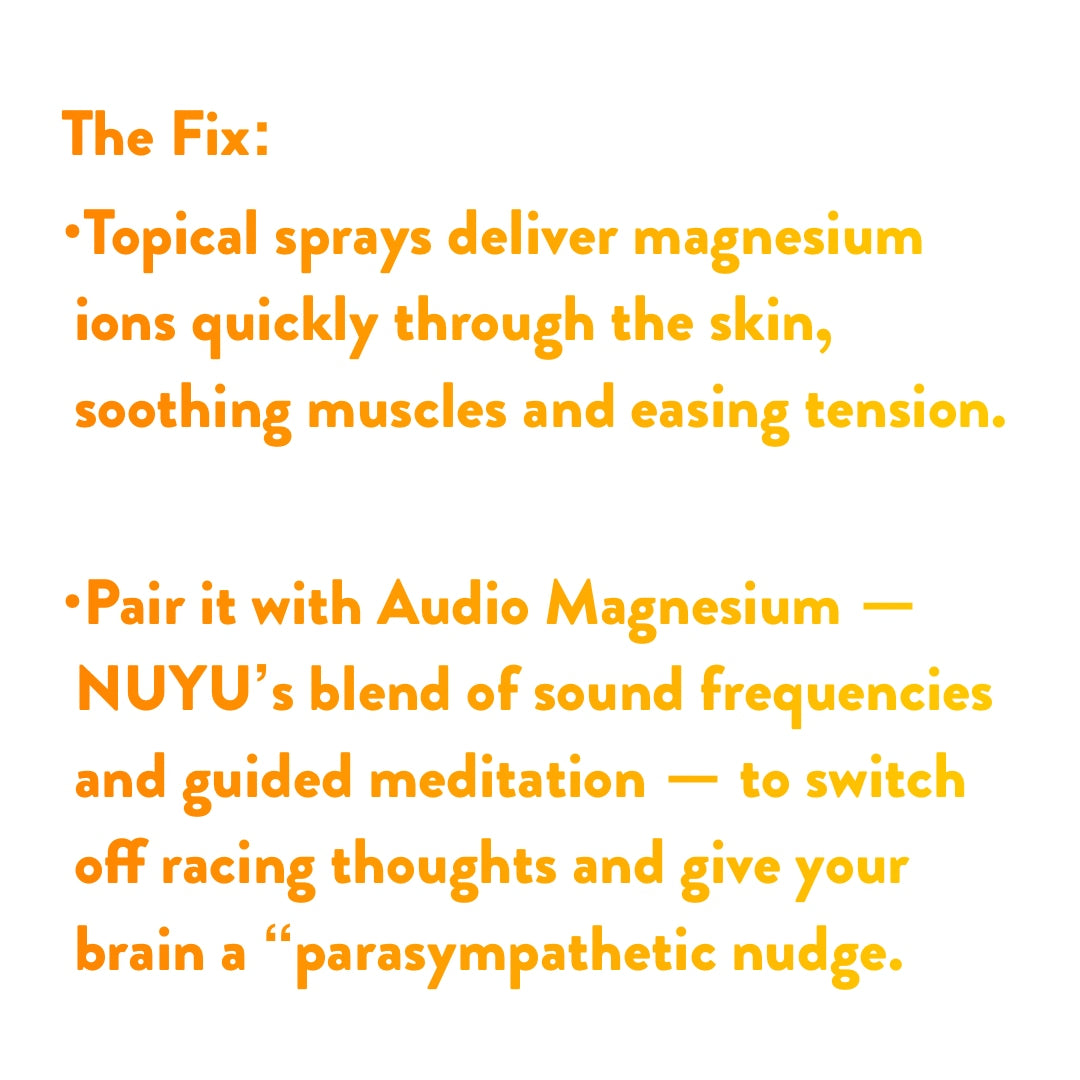
Think of your body like a car. The sympathetic nervous system is the accelerator — fight, focus, stress. The parasympathetic system is the brake — rest, digest, recover. If your brake pads are worn down, you’ll lie in bed wired, not tired.
Magnesium is a key mineral for the “brake system.” It regulates GABA (gamma-aminobutyric acid), the neurotransmitter that tells neurons to calm down. Deficiency is linked to poor sleep quality, muscle cramps, and even restless legs.
Science check: In trials, magnesium supplementation has been shown to reduce the time it takes to fall asleep and improve sleep efficiency by stabilising nervous system activity.
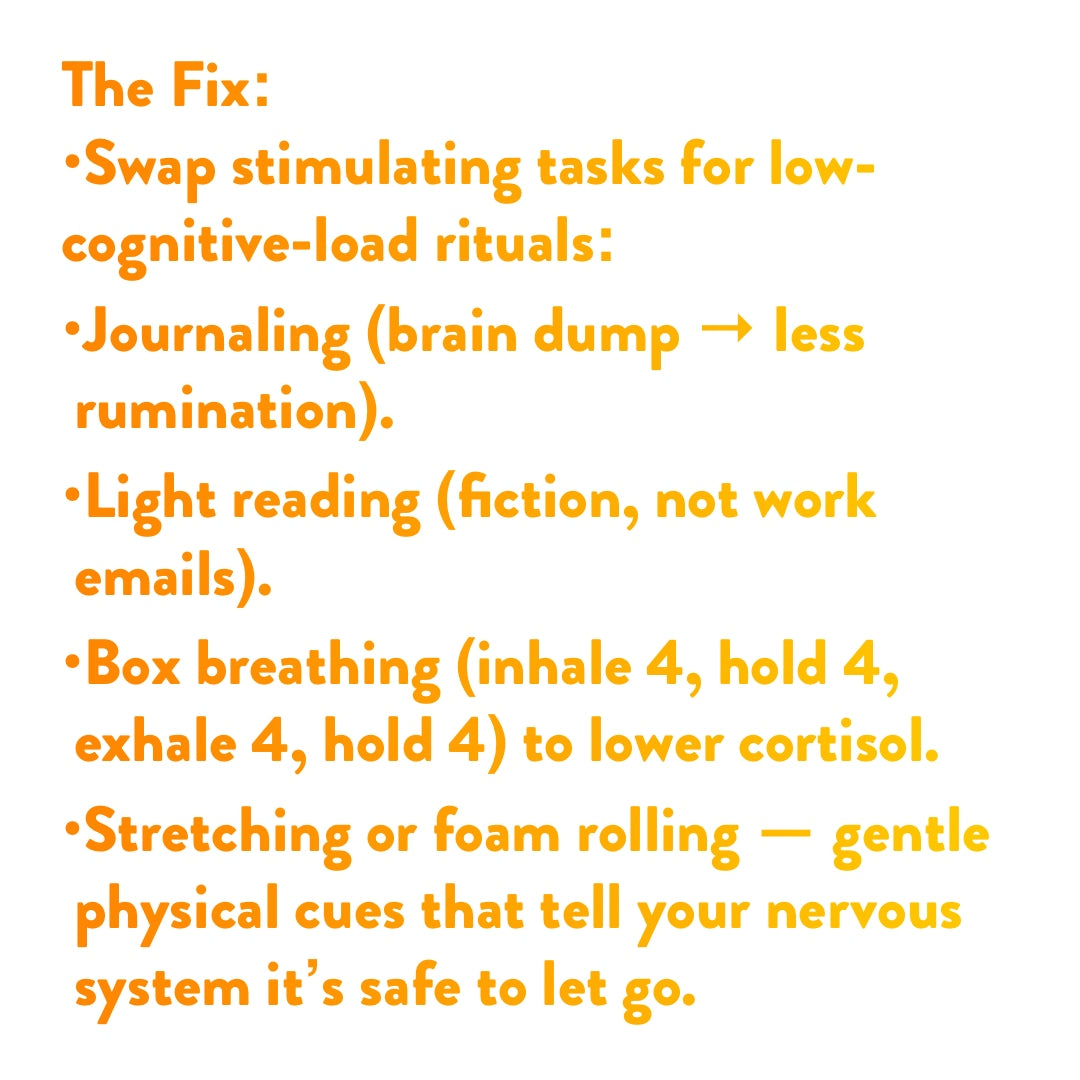
Your brain isn’t just light-sensitive, it’s input-sensitive. The last thing you do before bed sets the tone for the night. News feeds? Doomscrolling? That keeps your prefrontal cortex over-engaged. Stress hormones (like cortisol) spike, making melatonin’s job harder.
This isn’t “wellness fluff.” These are proven ways to reduce pre-sleep arousal. The lower the arousal, the smoother the transition into Stage N1 sleep (the first stage of non-REM).
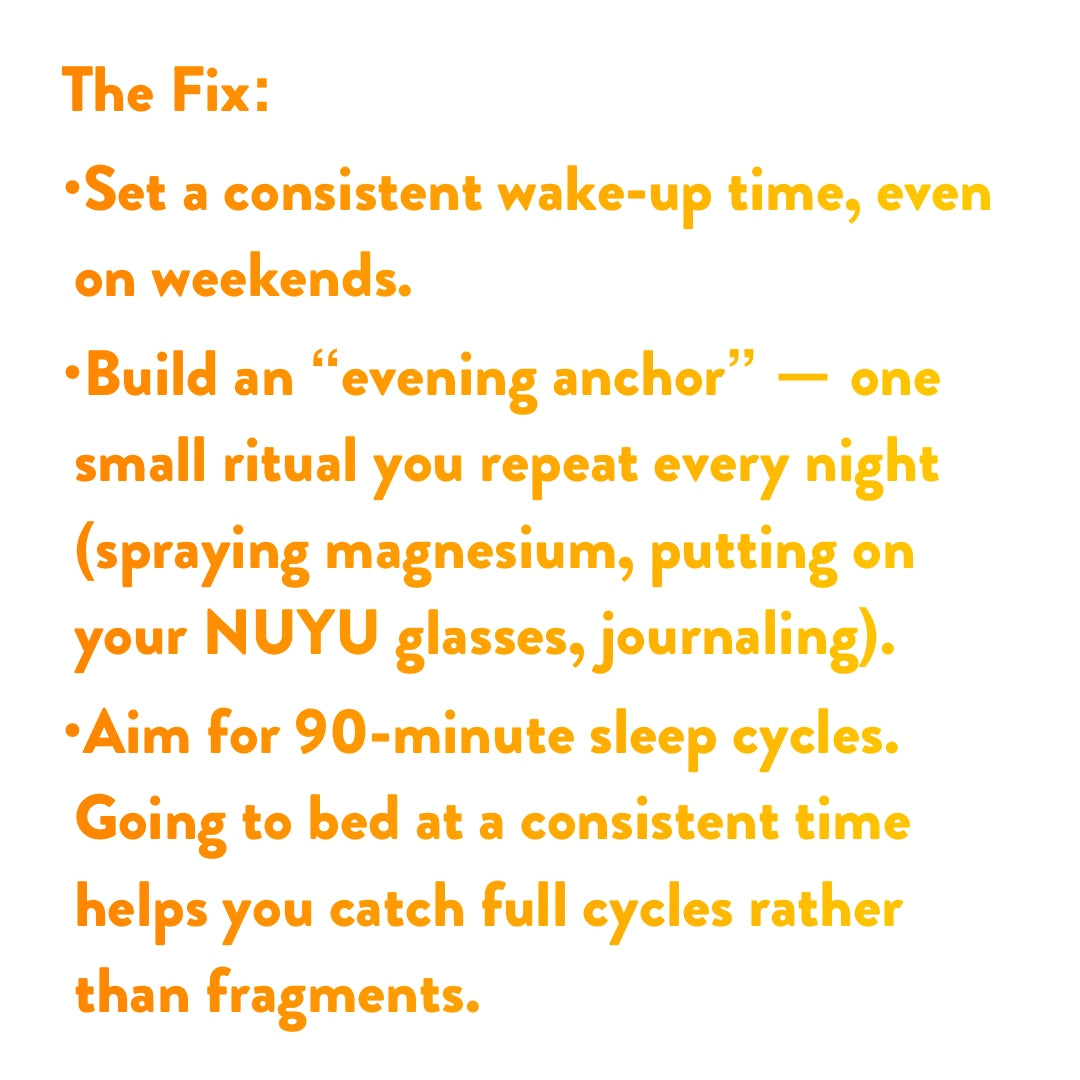
The SCN — that master clock in your hypothalamus — works best when it has regular cues. If your bedtime is all over the place, melatonin release shifts, cortisol ramps unpredictably, and your sleep becomes shallow.
Science check: People with irregular sleep schedules show decreased cognitive performance and increased insulin resistance compared to those with steady rhythms. This isn’t just about feeling tired — it’s long-term health.
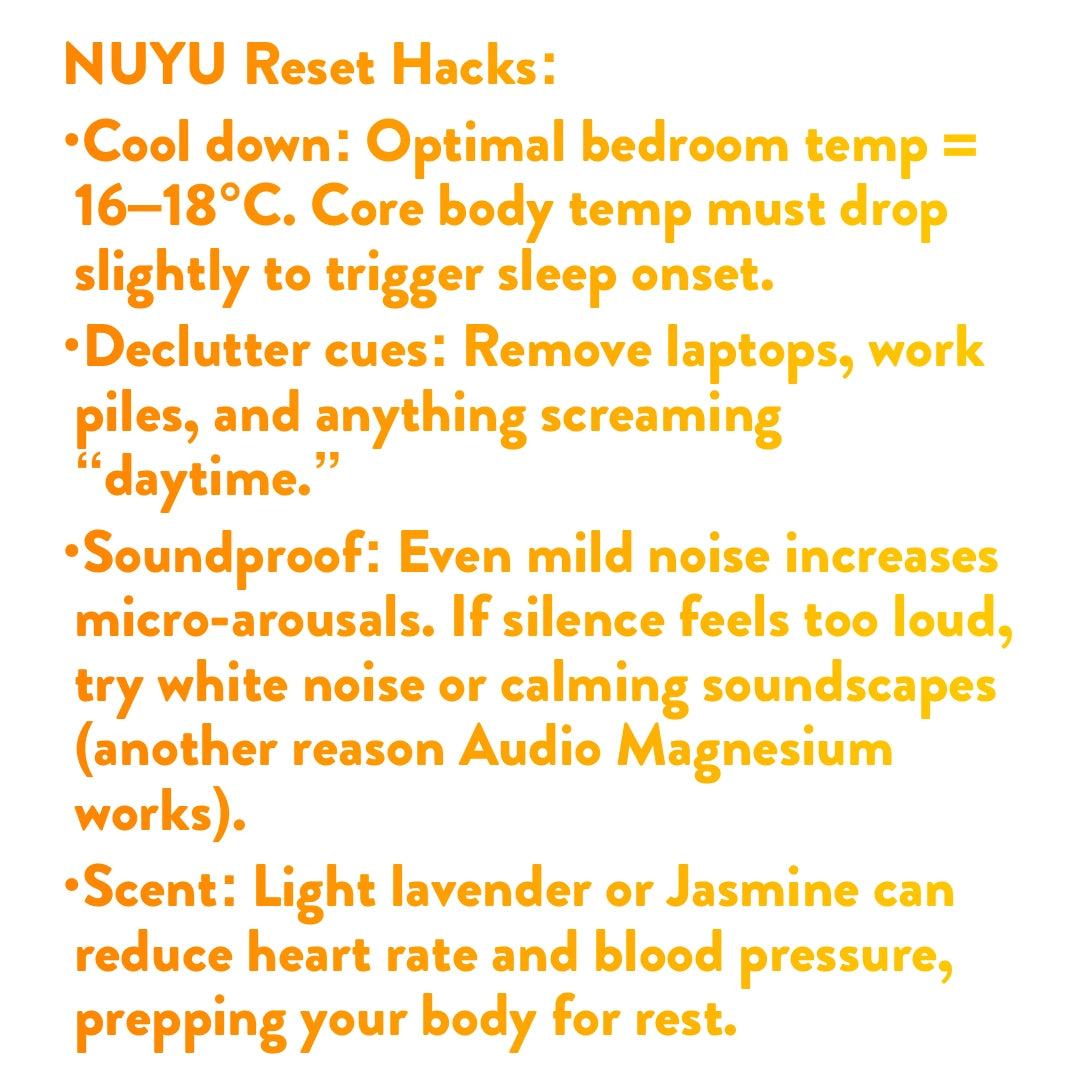
Your sleep environment should say one thing: rest happens here.
Sleep isn’t a battle you fight with melatonin gummies or herbal teas. It’s about respecting biology — light, minerals, rhythms, inputs, and cues. Once those align, deep sleep follows naturally.
At NUYU, we believe in rituals that actually work. Spray magnesium. Play a guided reset. Slip on your glasses. Journal for 5 minutes. None of it is complicated. All of it works with your body, not against it.
And yes — NUYU Blue Light Glasses are on the way. Because sleep isn’t just about supplements. It’s about building a full reset system that’s stylish, science-backed, and refreshingly un-boring.